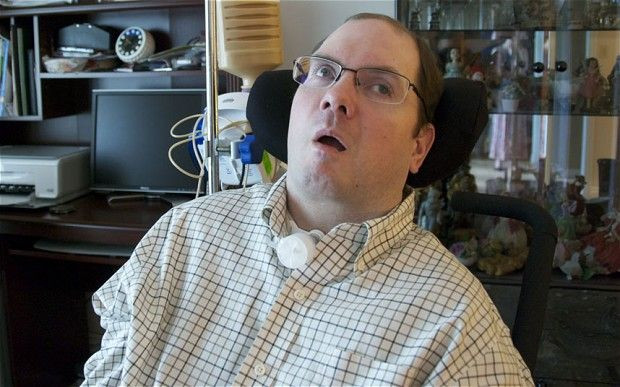Vegetative Patient Uses His Thoughts to Tell Doctors He Is Not in Pain

A 39-year-old Canadian man believed to have been in a vegetative state for 12 years has been able to communicate using the power of thought, proving that he is conscious and aware of his condition.
Scott Routley, who was left severely brain damaged after a car crash, was able to tell his doctors he is not in any pain by using a pioneering question-and-answer technique using fMRI imaging.
Scott is one of several patients being treated using the technique developed by Professor Adrian Owen of the University of Western Ontario.
Researchers said that Scott's case marks the first time a patients said to be in a permanent vegetative state has been able to answer questions related to his care. The latest finding also means that Scott, and others like him, can communicate in a way that could help doctors improve his quality of life.
Scott communicated through a question-and-answer technique using fMRI imaging.
Researchers developed the technique by asking patients diagnosed as vegetative to imaging doing certain common activities, like playing tennis or walking through a house. Researchers said these tasks produce distinct brain scans in healthy subjects, and researchers were able to produce those distinct brain scans in patients by asking them questions and for them to imagine playing tennis as a proxy for yes and walking through your house for no.
Using the fMRI researchers were able to look at the subsequent changes in blood flow to work out the patients' answers.
Researchers explain that patients asked to imaging playing tennis have an increase in blood flow in an area at the front of the brain called the pre-motor cortex, which can be detected by the fMRI. An entirely separate area of the brain, the parahippocampal gyrus in the middle part of the brain is activated when patients asked to imagine themselves walking around different rooms in their house. The difference in blood flow allows researchers to clearly distinguish whether the patient is thinking "yes" or "no".
Owen was able to confirm the method by asking vegetative patients factual questions, which many were able to answer correctly.
"Asking a patient something important to them has been our aim for many years. In future we could ask that we could do to improve their quality of life," Owen said to reporters on BBC Panorama program.
"Scott is the first to have been able to answer whether he was in pain. On two occasions in the last six months he has told doctors 'no' by imagining he was playing tennis. Until then patients had responded to basic questions such as 'is your father's name Alexander?' or 'do you have a niece?'" he said.
Doctors hope to ask Scott in the coming weeks whether he prefers to be bathed or given his dinner. His family also wants to know if he likes listening to ice hockey on the radio.
"Scott has been able to show he has a conscious, thinking mind,' Professor Owen said. 'We have scanned him several times and his pattern of brain activity shows he is clearly choosing to answer our questions. We believe he knows who and where he is," Owen said.
Scott's parents said that they have always thought that he was conscious and could communicate by lifting a thumb or moving his eyes, but doctors never accepted it.
"He had the clinical picture of a typical vegetative patient - no emotional response, no fixation or following with his eyes. He didn't have any spontaneous movements that looked meaningful and I was quite impressed and amazed that he was able to show these cognitive responses with fMRI," said Scott's neurologist Professor Bryan Young of University Hospital in London, Ontario, according to BBC.
Owen noted that not all vegetative patients are able to respond using his technique because it requires a lot of concentration. He says about one in five who have scans can answer questions.
Published by Medicaldaily.com



























